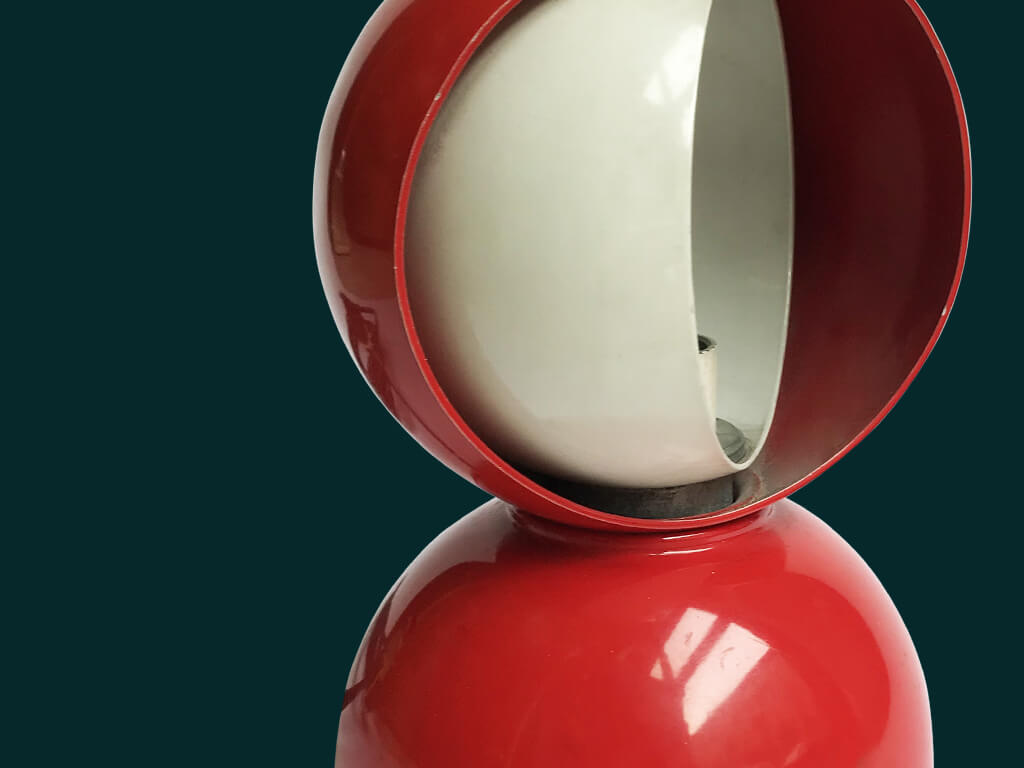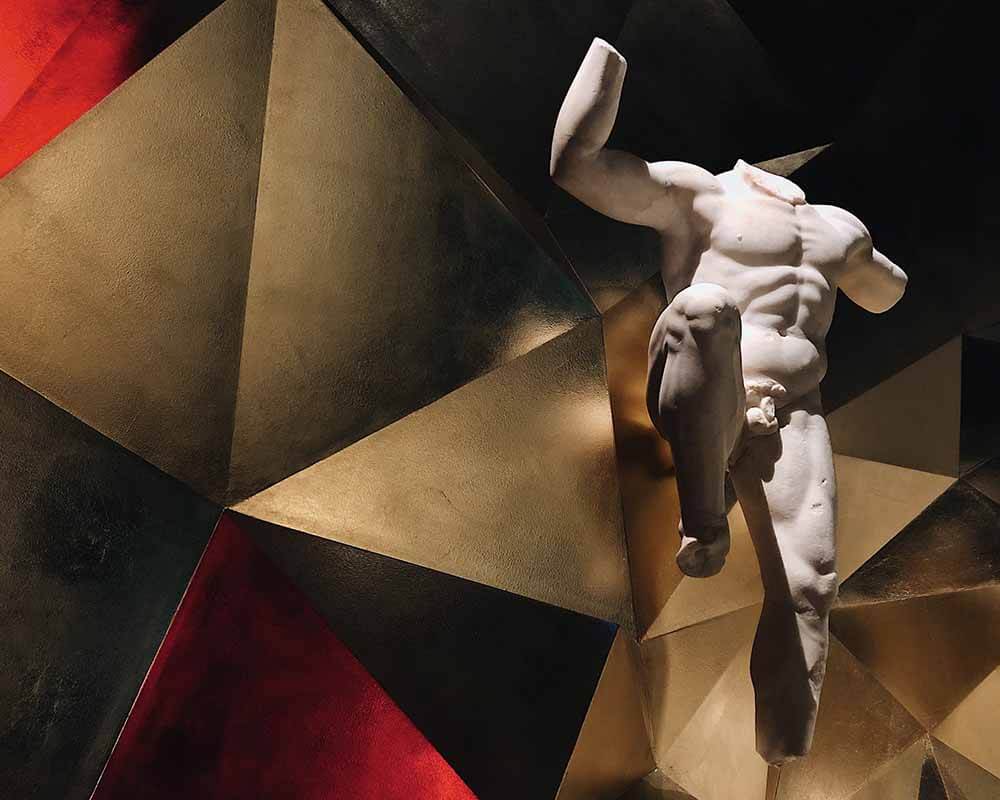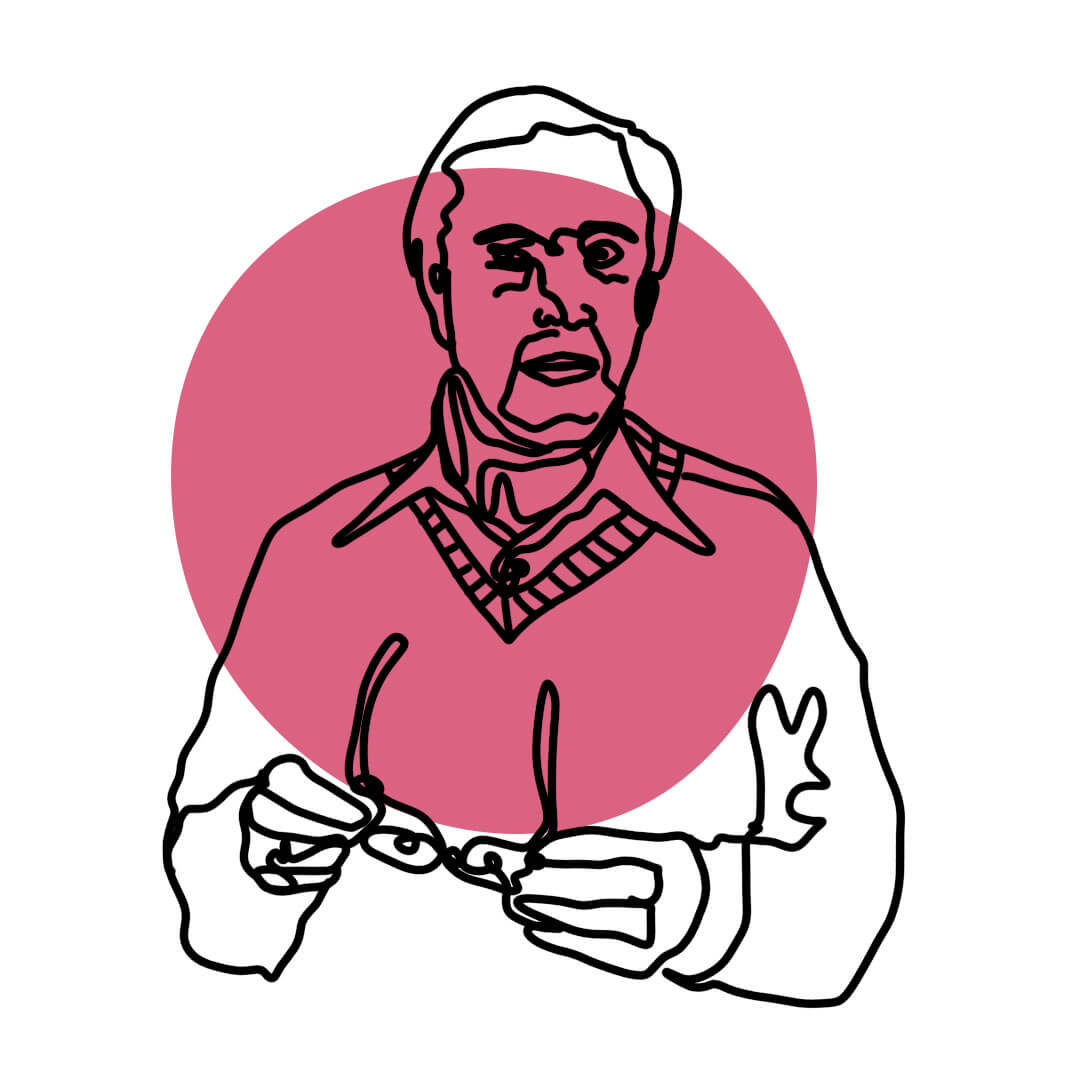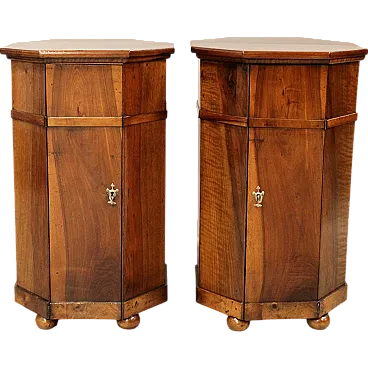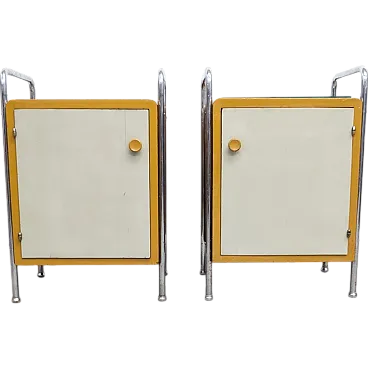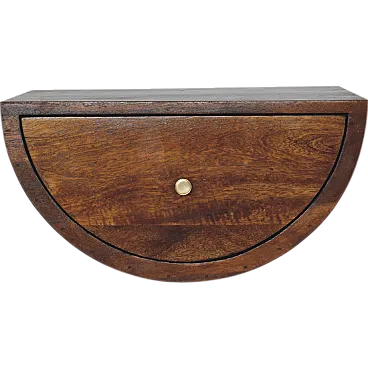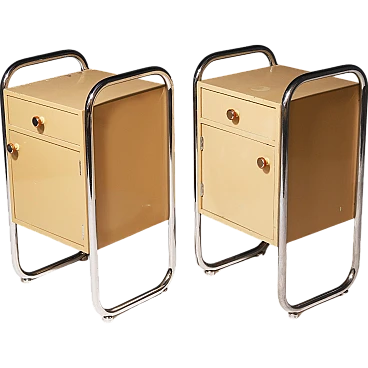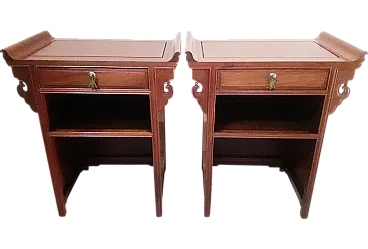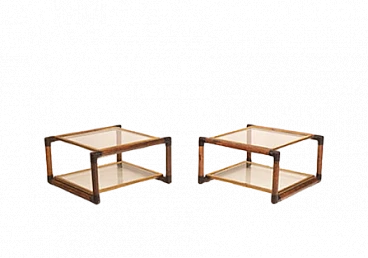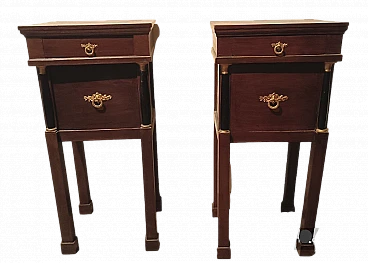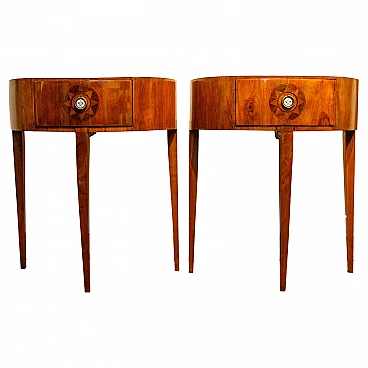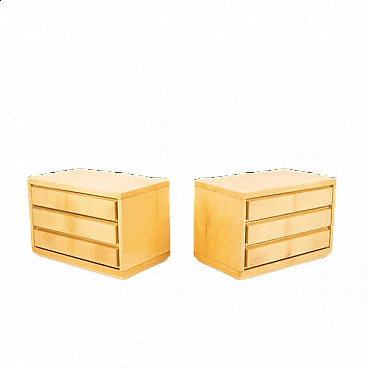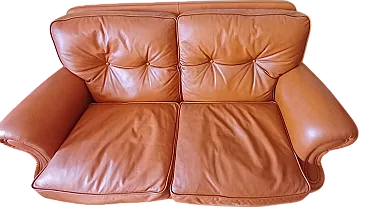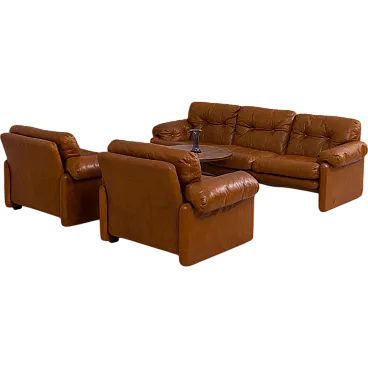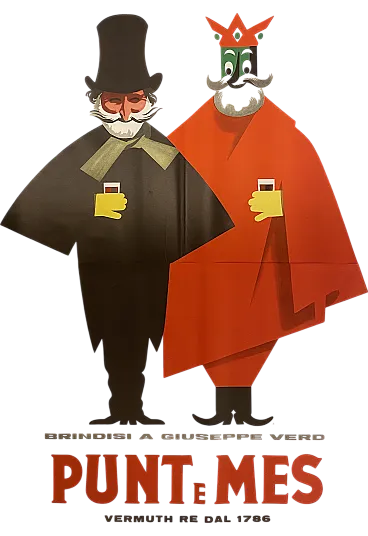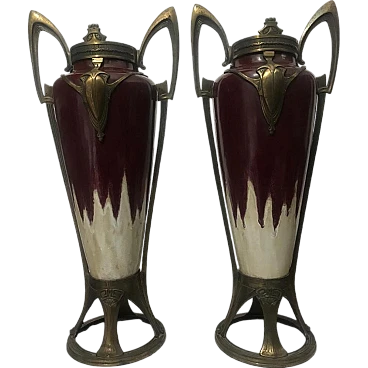Pair of bedside tables mod. SC50 in rosewood by Claudio Salocchi for Sormani, 1960s. Claudio Salocchi was an Italian architect and designer, a protagonist of the creative ferment of the 1960s and 1970s, who was able to interpret the transformations of that period in a design vision anticipatory of new forms, functionalities, technologies and typologies that would become trends many years later. His long career saw him engaged for more than fifty years in the international field in the fields of industrial design, architecture and interior design, making an important contribution to Italian history that needs to be partly rediscovered and deepened. At the beginning of the 1960s dates the creative partnership with the young entrepreneur Luigi Sormani, which would last for twenty years; among the most significant pieces is the well-known revolving bookcase Centro, his first product designed in 1959, but also futuristic projects such as the Elisse series, in 1966, characterized by the innovative use of extruded aluminum profiles, elevated to aesthetic and functional value and, in the same year, the Lia chair seated in leather with its original forward cantilever profile, composed of a structure made of aluminum alloy bars, cold bent. 1968 saw the archetypal Paione, a low, deep "sofa" made up of variously modular elements that revolutionized the living area, bringing a new, more informal and convivial way of living to the center of the space. In 1971, again with Sormani, Aloa, one of the very first halogen light source lamps for domestic use, went into production. In the same year at the Salone del Mobile was presented the Appoggio, an anomalous vertical seat, imagined for the new needs of work, transportation, waiting... Even a new world. Equally original are the lighting and upholstered furniture projects, signed in the 1970s and 1980s under the Skipper brand, which always propose new lifestyles. The Ri-flessione lamp, the Feeling sofa, and especially the Free System materialize in furniture form the utopia of a modern, nonconformist home. In these decades, unrepeatable for the openness to experimentation on the part of the Italian entrepreneurship, is the creative experience with Lumenform, which brings to light several modular series in blown glass such as, for example, the floor model Zea, from 1968 and the Onda, a ceiling and wall system, but also the Fluo, an essential stem in extruded aluminum that wraps a simple fluorescent tube and, finally in 1971, the metaphysical table lamp Tulpa. From the mid-1980s the long collaboration with Rossi di Albizzate began in the field of high-end upholstered furniture, in a return to more traditional types of furniture, but always embellished with innovative and personal details. In the transforming production context of industrial design, since the 1990s the close relationship with artisan production, in particular Bottega Gadda and Pierluigi Ghianda, is also affirmed for Salocchi, in a continuous cross-reference between design and architecture, where projects recover the spirit of the Genius loci and objects are also proposed in limited and dedicated series. Finally, they embrace the entire fifty years of Salocchi's activity all the projects for Alberti Cucine, born from the mid-1960s with the first version of the S60 model, with which he introduced new ergonomic and domestic work standards. For his quest to synthesize form and function, the pinnacle of this assiduous work can be considered the design of the MetrOsistema, a program of multifunctional containers, awarded the Compasso d'Oro in 1979. A member since 1967 of ADI, the Association for Industrial Design, of which he was vice-president in the late 1980s and early 1990s, he actively participated in the promotion of Italian design.
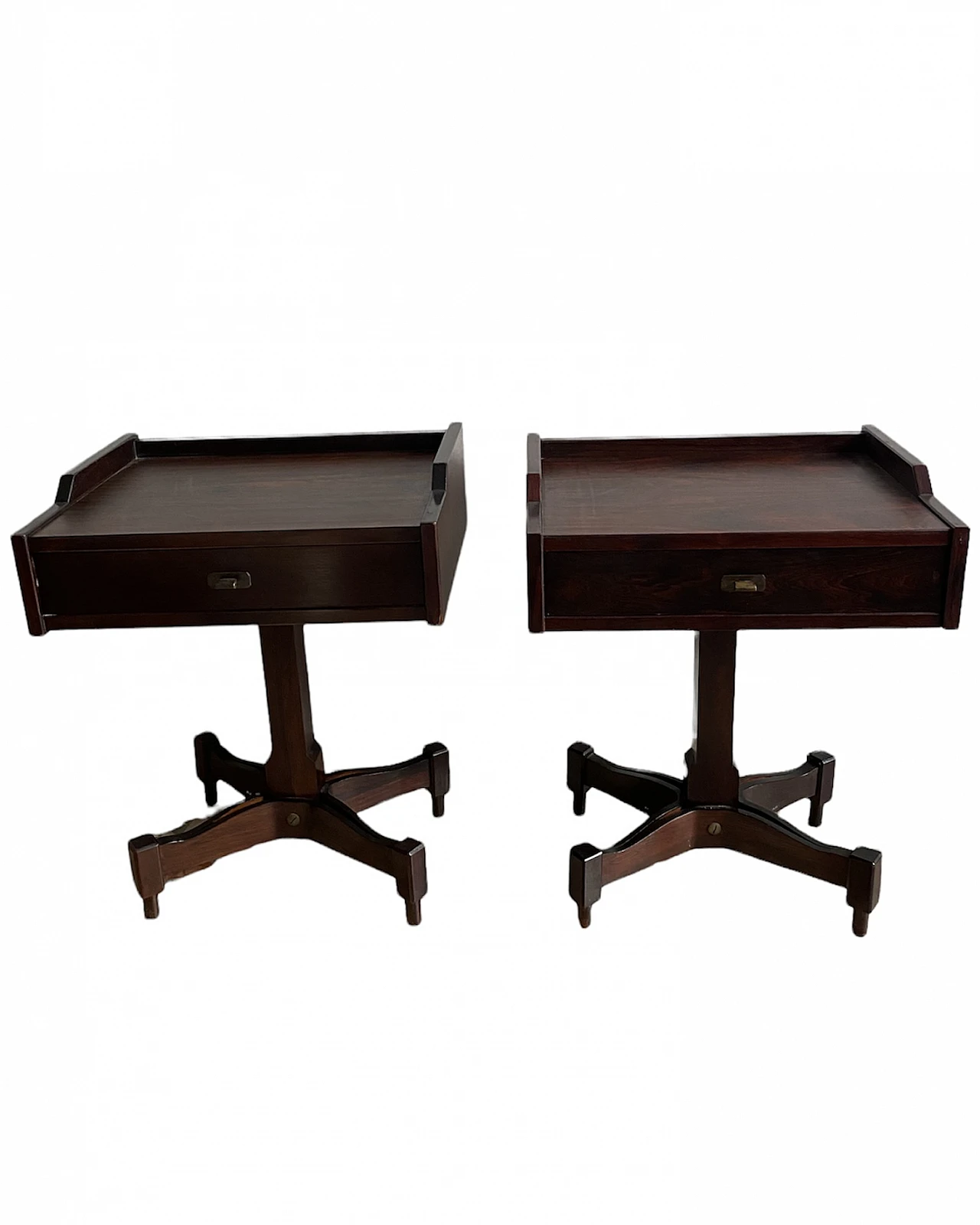
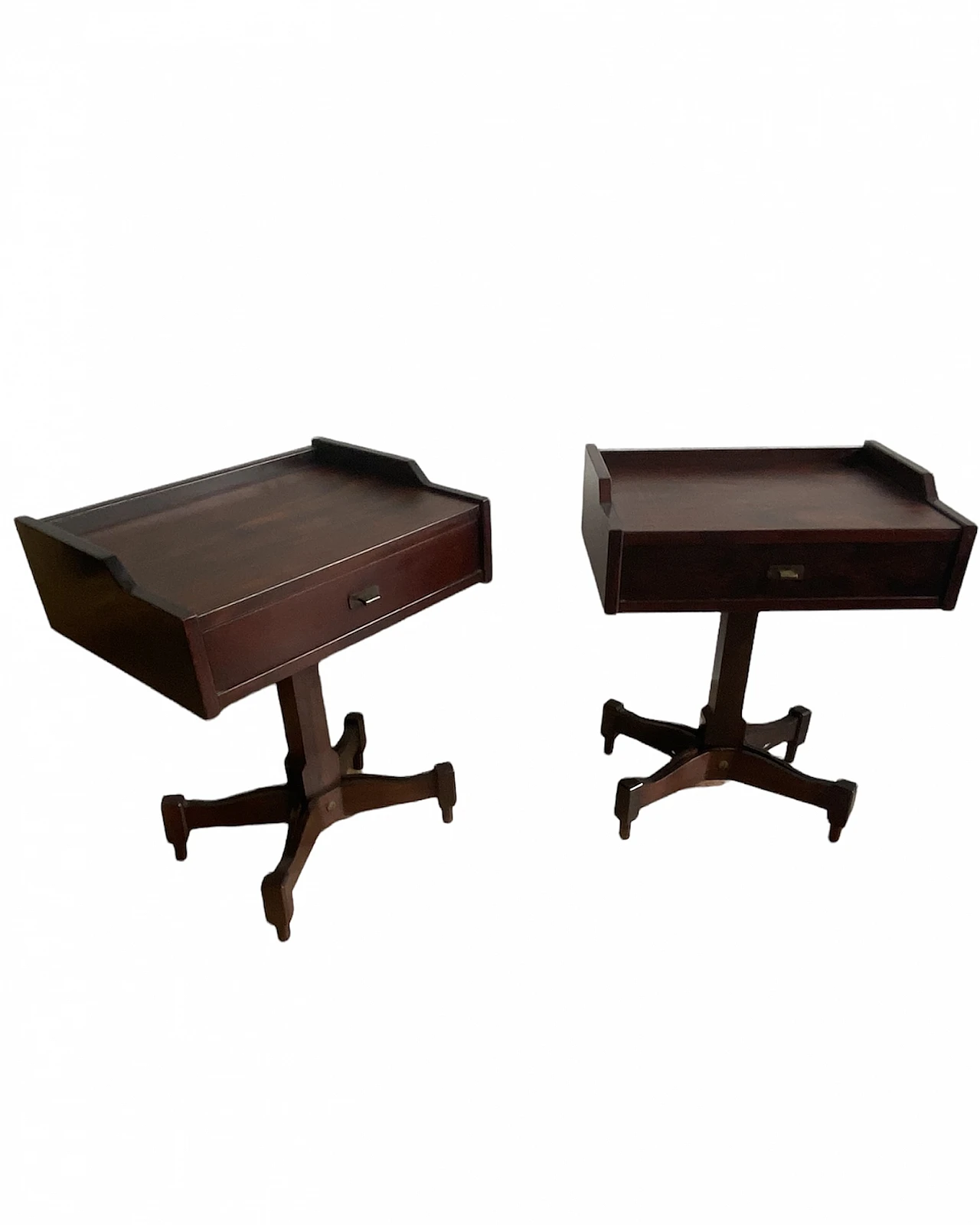
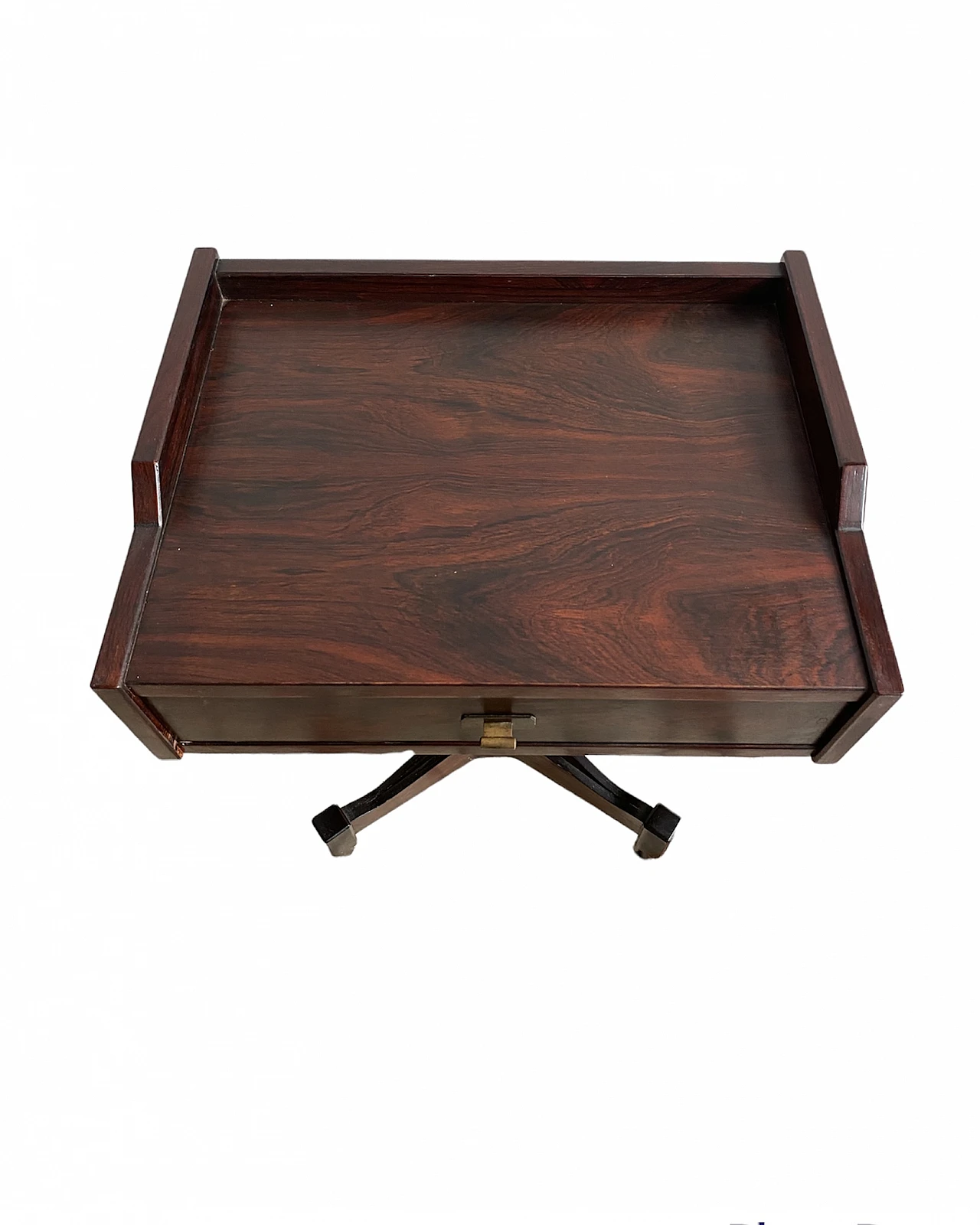
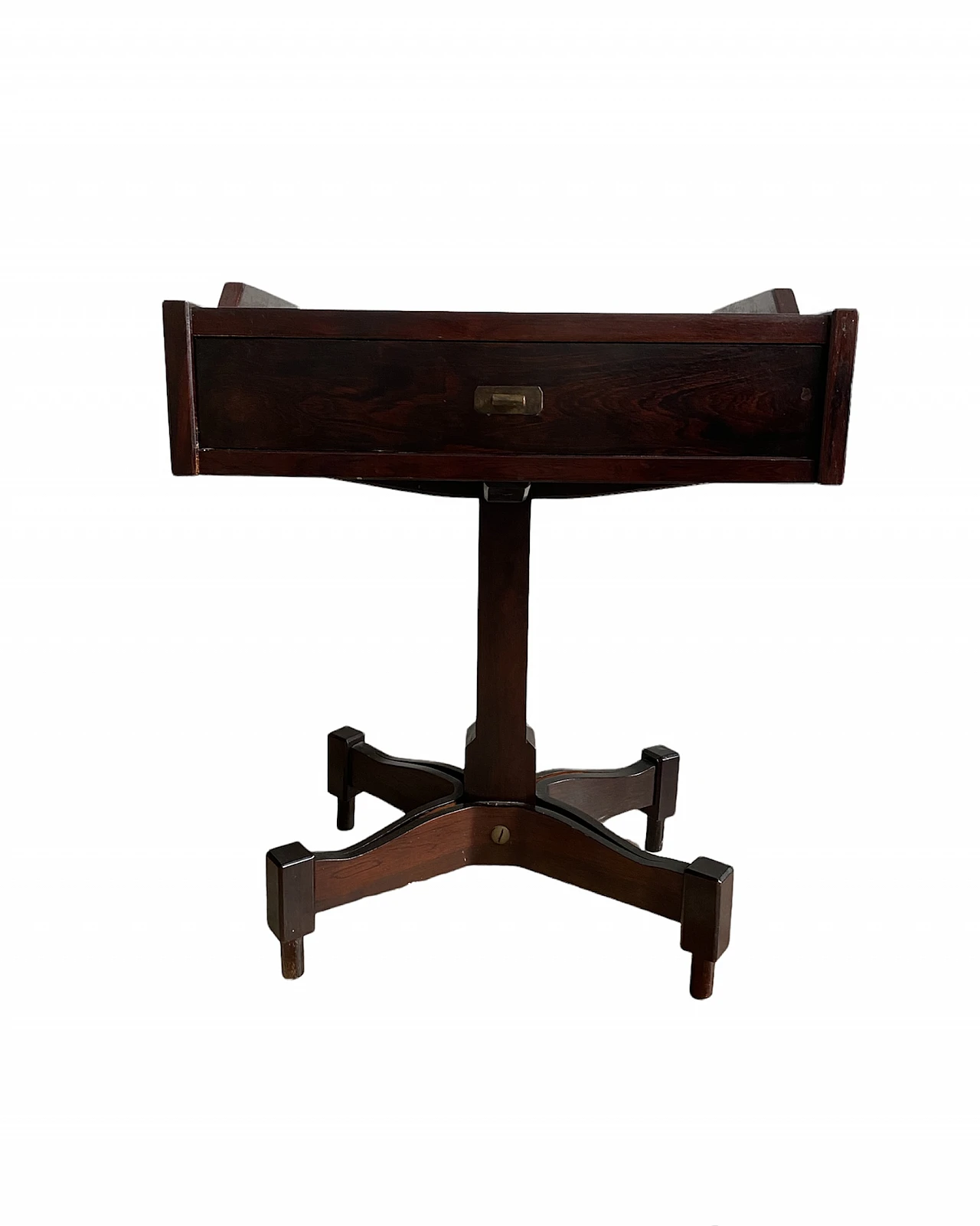
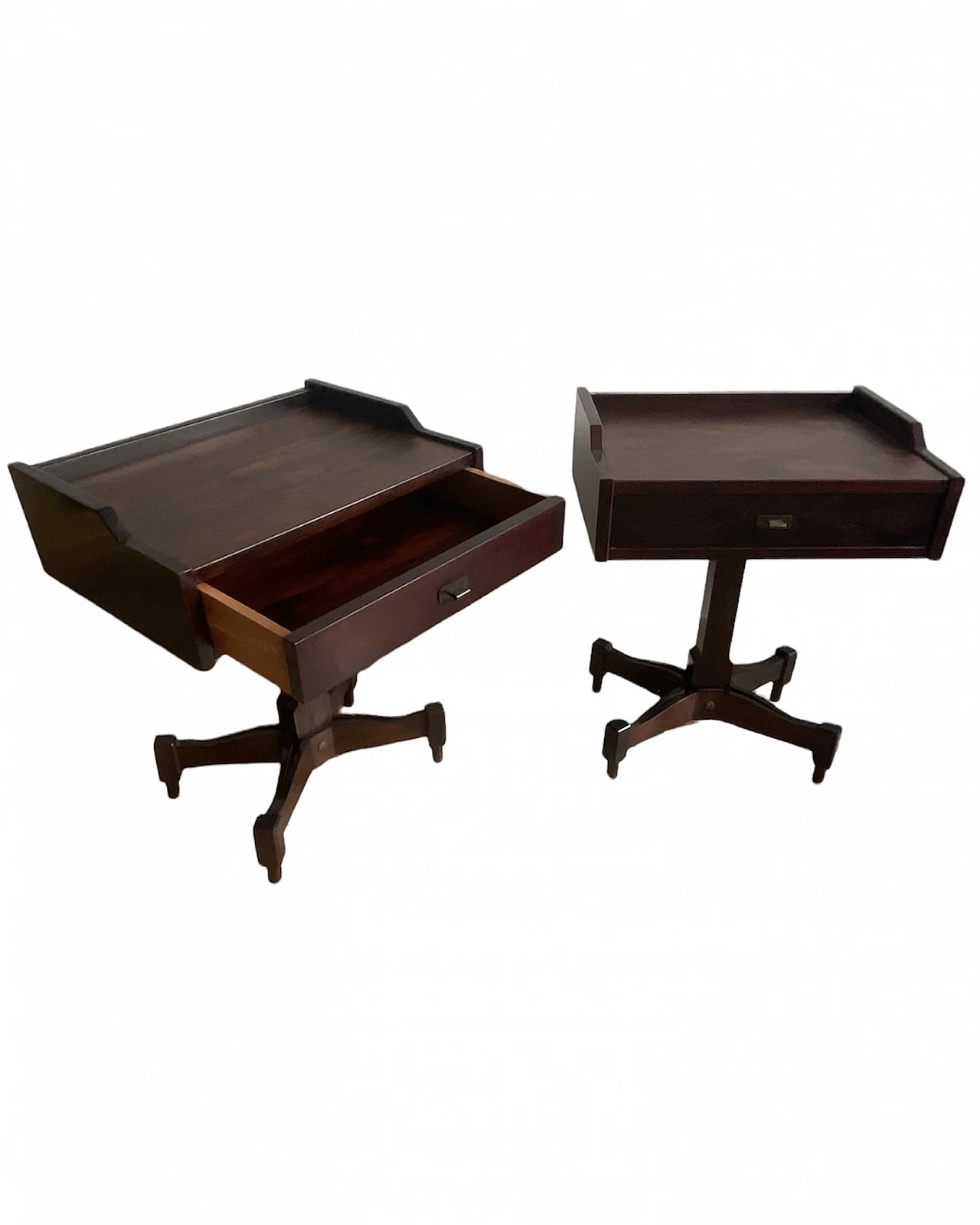
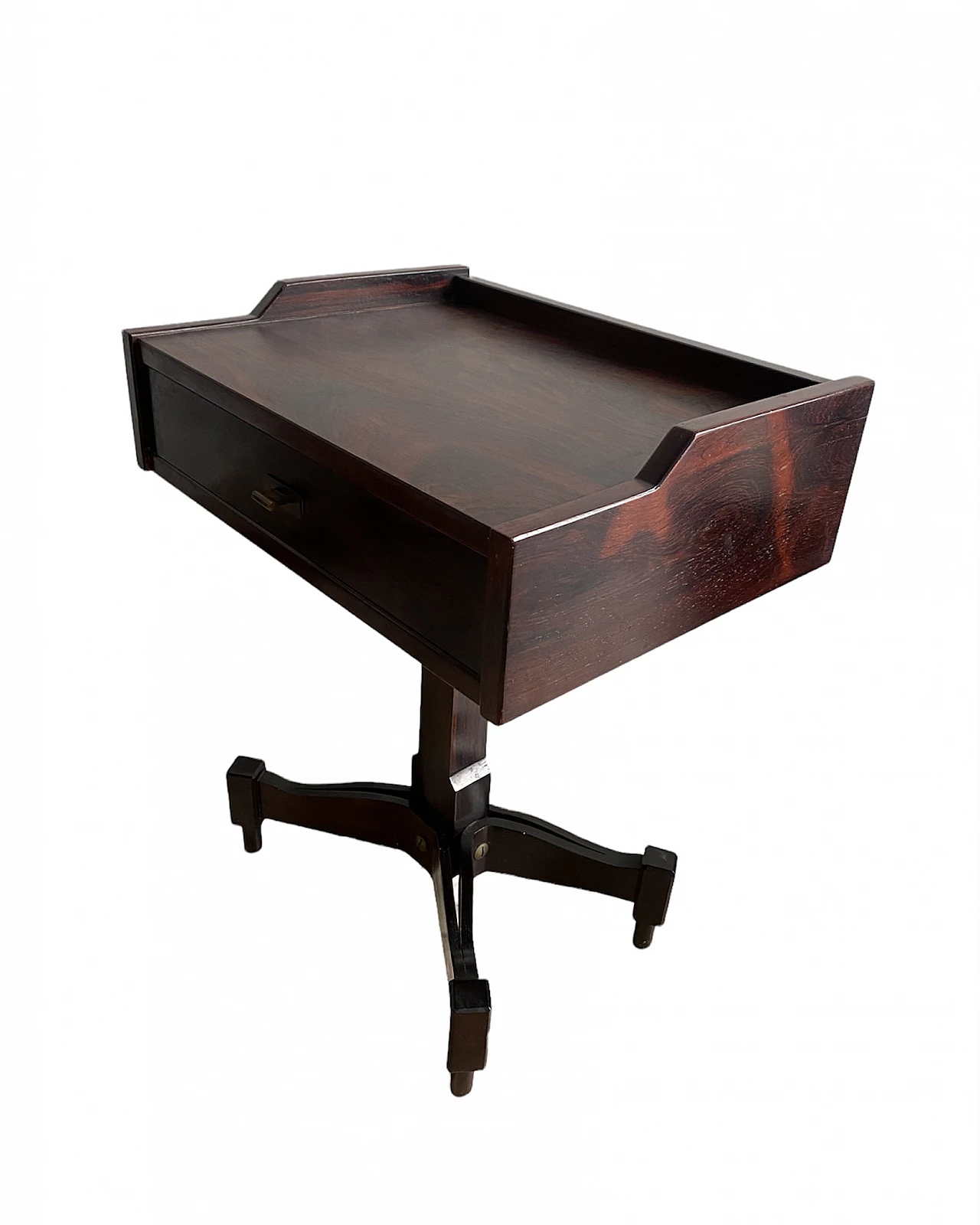
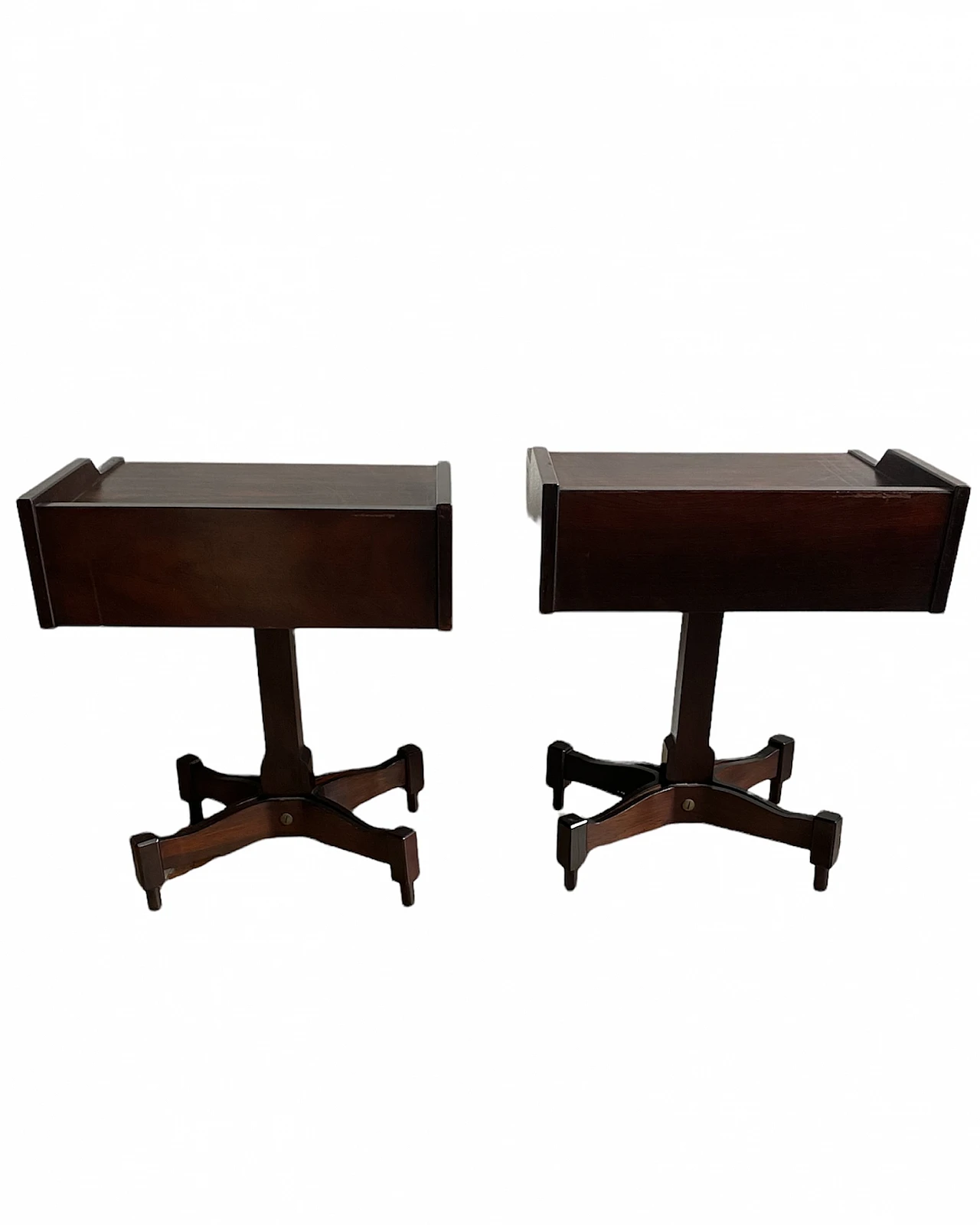
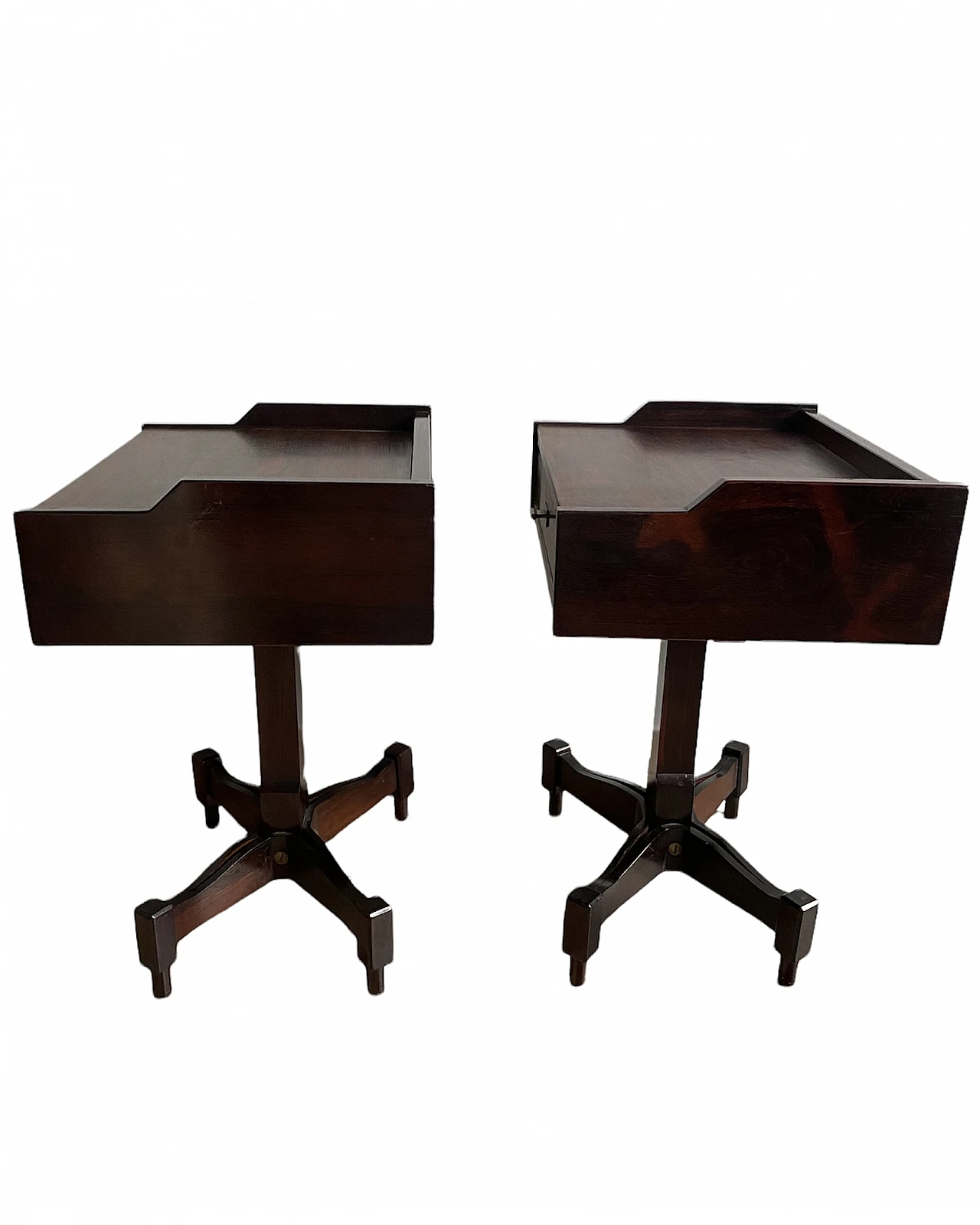
 BRONZE Seller in Parma, Italia
BRONZE Seller in Parma, Italia
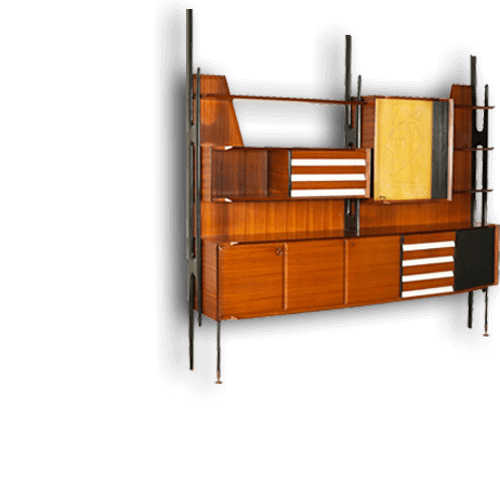
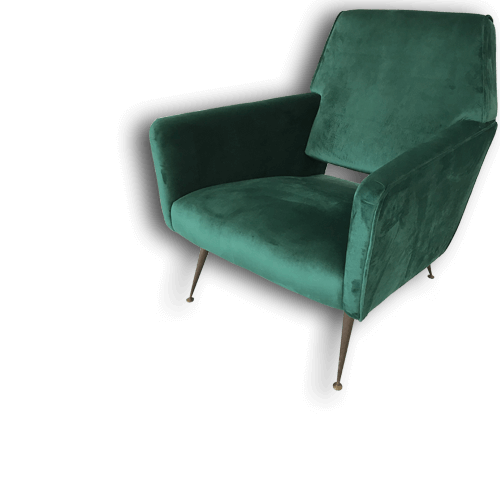



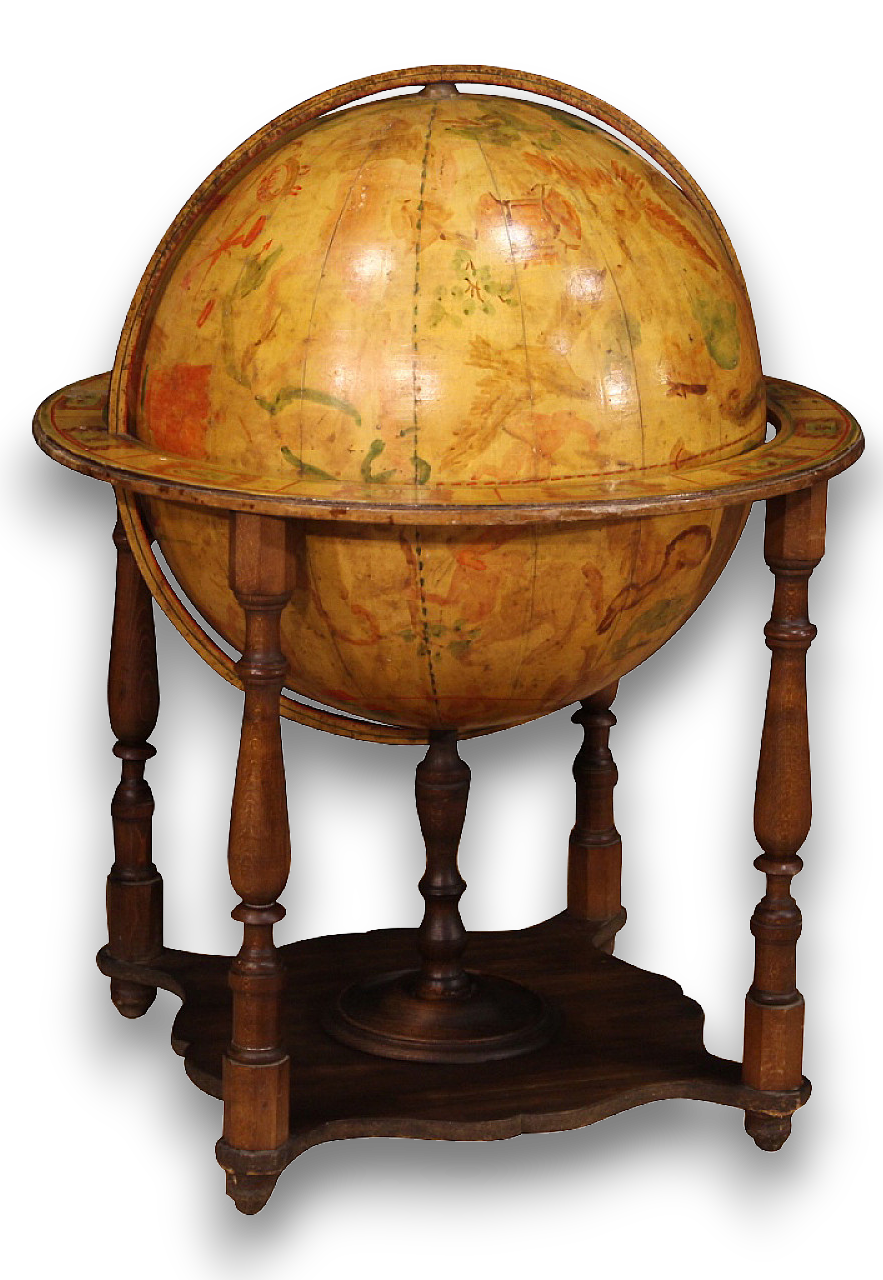
.png)

